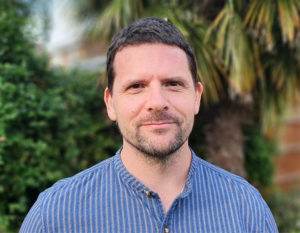

Ian Roullier is the co-founder of the Psychedelic Participant Advocacy Network (PsyPAN). Ian’s participation in two clinical trials examining the effect of psilocybin on depression, run by Imperial College (2015) and King’s College/Compass Pathways (2019), naturally led to his dedication to help bring these treatments safely to all who may benefit from them. He co-founded PsyPAN in 2021 to work with organisations providing psychedelic-assisted therapy, drawing upon the vast lived experience of people who have received these treatments to help create a sector-wide model of best practice that places participant well-being at its heart. PsyPAN also aims to provide much-needed community and connection for people who have received these treatments.
Leonie Schneider, a passionate mental health advocate, is committed to expanding access to psychedelic assisted therapies by advocating for the safe and integrated use of psychedelics. After participating in a Psilocybin for Depression trial at Imperial College (2019) and Small Pharma’s DMT for Depression trial (2022), she co-founded the Psychedelic Participant Advocacy Network (PsyPAN) to help inform the delivery of trial and treatment design from a participant perspective. Leonie’s recognition as one of the top 20 influential, innovative, and disruptive women in psychedelics speaks to her commitment to enhancing participant well-being and improved outcomes.
Colloquium Presentation: 08 March 2024
The importance of lived experience in psychedelic safeguarding
Having participated in four psychedelic clinical trials between them, Leonie Schneider and Ian Roullier will explain how their personal experiences led to the creation of the Psychedelic Participant Advocacy Network (PsyPAN) and outline the organisation’s work and mission. This brief introduction will be followed by a panel discussion around the various ways that Experts by Experience can help inform and improve the trial and treatment process at every stage – as well as what happens after – and therefore improve outcomes.
Without participants, there would be no clinical research and psychedelic-assisted therapy would never become a reality for those who may potentially benefit from it. But beyond this, the wealth of lived experience of people who have received these treatments can, and must, be tapped into to help improve participant well-being and maximise the potential of these powerful medicines that are showing promise in treating a variety of conditions. This session will explore how learning from and – most importantly – acting upon people’s lived experience can help improve psychedelic safeguarding for future participants. It will also examine the importance of connection to a community and peer support post-treatment, and how that may make a key difference to people’s long-term well-being and recovery.